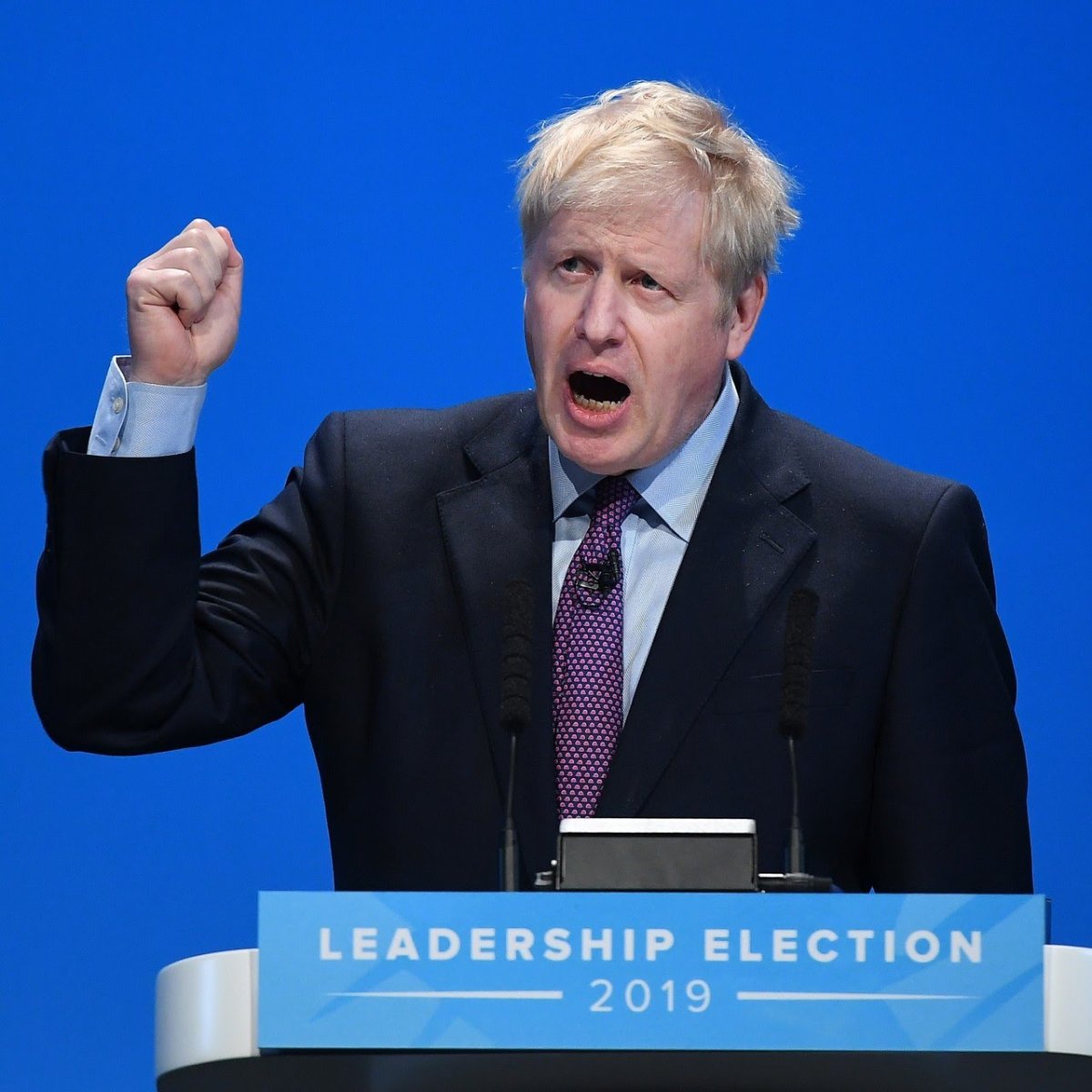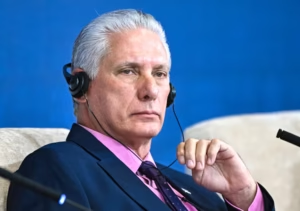
British Prime Minister Boris Johnson has won a stunning electoral victory, defying expectations and clearing the way for Britain to leave the European Union next month.
With all but one of Parliament’s 650 seats counted, the Conservatives were projected to win a majority 364, at least 78 seats more than all the other parties combined, which is far higher than most opinion polls had indicated. The Labour Party suffered its worst showing in more than 70 years, dropping 59 seats with a projection of 203.
Liberal Democrats were projected to win 11 seats, but party leader, Jo Swinson, lost her seat to the Scottish National Party. The Liberal Democrat party said that a leadership election will take place in the new year.
Labour Leader Jeremy Corbyn said early Friday that he would not lead the party into the next election after admitting it had been a “very disappointing night.” He said he will continue to lead the party as it discusses its future.
The win for the Conservatives marks a remarkable turnaround for the party and a personal triumph for Mr. Johnson, who has confounded pundits since he took over as party leader in July from Theresa May. Only a few months ago, the Conservatives were languishing at 9 per cent in the opinion polls, and Ms. May seemed incapable of delivering Brexit.
Mr. Johnson turned things around by uniting his fractious party and renegotiating a withdrawal agreement Ms. May had struck with the EU. When Parliament delayed ratification of the deal in October, he plunged the country into a snap election and gambled that voters would see his deal as the only way out of the Brexit impasse.
The risk has paid off handsomely, and Mr. Johnson now has a decisive mandate to pursue his agreement, which calls for Britain to formally leave the EU on Jan. 31.
“I think this will turn out to be a historic election that gives us now, in this new government, the chance to respect the democratic will of the British people,” Johnson said after winning his seat of Uxbridge.
Mr. Johnson ran a near flawless campaign, sticking to his mantra to “get Brexit done” and staying clear of any missteps. He also capitalized on the lack of clarity in Mr. Corbyn’s position on Brexit, which confused many voters. The Conservatives picked up more than 60 seats in England and Wales, nearly all in staunch Labour strongholds that were solidly pro-Brexit.
“It’s rare that you get so many seats changing hands in any one election, so he’s going to have a whopping great majority and it will take probably several elections to lose it,” said Simon Hix, a professor of politics at the London School of Economics. “My expectation is we’ve got Boris in No. 10 for 10 years.”
Mr. Johnson still faces plenty of challenges, and the debate over Brexit is far from settled. The next big hurdle will be negotiating a trade deal with the EU. During the campaign, Mr. Johnson promised to deliver a sweeping agreement that would go far beyond the Canada-EU trade deal, which is considered one of the most comprehensive in the world. But he doesn’t have much time.
The withdrawal agreement includes a transition period that runs to the end of 2020. During that time, Britain will essentially remain within the EU’s single market, but it won’t participate in the bloc’s institutions. Mr. Johnson has said he can negotiate a trade deal before the transition expires. Few experts or EU officials believe that’s possible, which raises the prospect that Britain will be entirely outside the EU in 2021 without an agreement with its largest trading partner. The transition can be extended for up to two years, but both sides have to approve that before July 1, 2020, and Mr. Johnson has said he won’t agree to any delay.
Aside from Brexit, Mr. Johnson also faces a daunting domestic agenda. The British economy has ground to a halt and business investment has all but stopped. The National Health Service is also woefully underfunded, and Mr. Johnson faced fierce criticism during the campaign over years of budget cuts by Conservative governments. Mr. Johnson has promised big increases in spending on health care and education, but he has been vague about where the money will come from.
Tony Travers, associate dean of the LSE’s school of public policy, said the big win could lead Mr. Johnson to soften his position on Brexit and seek more alignment with the EU. Many of the new Tory MPs are from ridings in northern England that could be adversely effected if Brexit goes badly. “I just don’t see the Conservatives wanting to damage the car industry or the chemical industry in places where those new voters now live,” Prof. Travers said.
Mr. Johnson is already facing renewed calls for a referendum on Scottish independence from Nicola Sturgeon, the leader of the Scottish National Party. The SNP won 48 out of 59 seats in Scotland, and Ms. Sturgeon campaigned relentlessly for Scots to have the right to decide their own future. She has argued that while Scotland voted in 2014 to remain in the United Kingdom by a margin of 55 per cent to 45 per cent, the situation has profoundly changed because of Brexit. Scotland opposed leaving the EU by 62 per cent in the 2016 referendum. Mr. Johnson earlier ruled out another vote on independence, but the Conservatives lost seven of their seats in Scotland, finishing with six .
“There is a clear desire and endorsement for the notion that Scotland should not be landed with a Boris Johnson government and ripped out of Europe against our own will,” Ms. Sturgeon told SkyNews early Friday. “Boris Johnson may have a mandate to take England out of the European Union. He emphatically does not have a mandate to take Scotland out of the European Union. Scotland must have a choice over our own future.”
A dedicated Socialist, Mr. Corbyn had pushed the party to the far left and advocated widespread nationalization, massive increases in public spending and higher taxes on corporations. That message worked in the 2017 election, and Labour nearly defeated the Conservatives under Ms. May. But his lack of clarity on Brexit hurt this time, particularly in Labour ridings where leaving the EU was popular. “The Labour Party in its current form is simply not electable with that kind of politics,” said Michael Cox, a professor of international affairs at the LSE. “I can’t believe there isn’t going to be anything other than a complete re-think inside the Labour Party about Corbyn and Corbynism.”
U.S. President Donald Trump congratulated Mr. Johnson on his election win and said that Britain and the United States will now be free to strike a ‘massive’ new trade deal after Brexit.
“This deal has the potential to be far bigger and more lucrative than any deal that could be made with the E.U. Celebrate Boris,” Trump said in a tweet.





